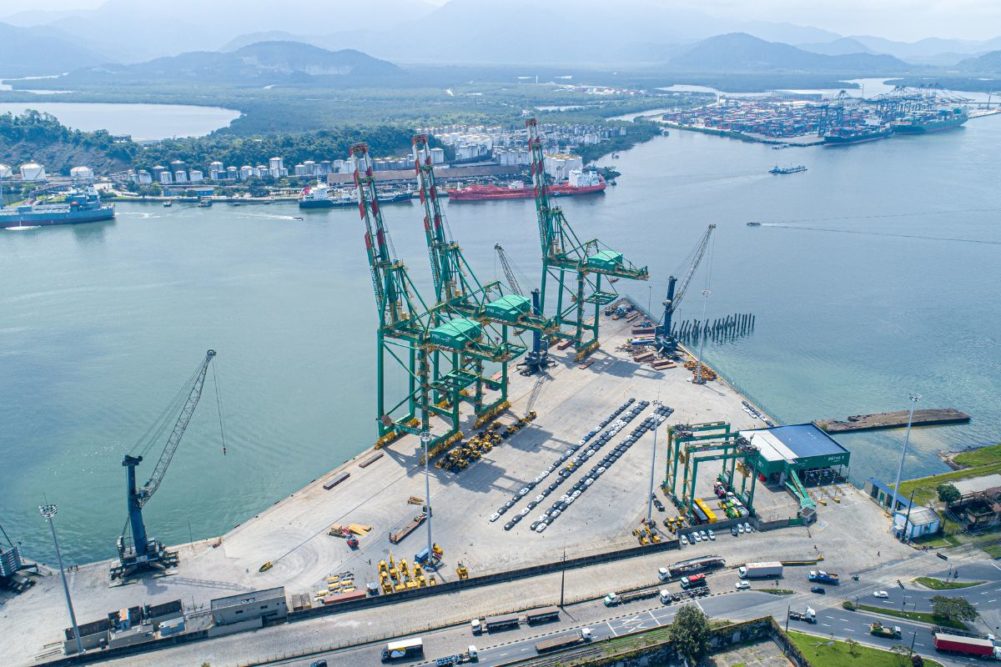SANTOS, BRAZIL — Brazilian rail operator Rumo and supply chain solutions provider DP World have reached an agreement to build a new port terminal for grains and fertilizers at the Port of Santos in Brazil. The project, which will be installed at DP World’s private-use terminal on the port’s left bank, will boost the port’s handling capacity by 9 million tonnes of grains and 3.5 million tonnes of fertilizers, DP World said.
DP World said Rumo has committed an investment of $500 million toward the construction of the project, which is expected to span 30 months. For its part, DP World will oversee port operations, including cargo movement.
The agreement between the two companies is for 30 years, with an option for extension subject to DP World approval, the company said.
“The railway mode is structurally the most effective, secure, competitive, and low-carbon logistics solution for moving large volumes of commodities for export, as well as for imported cargo, with inputs that increase the productive capacity of Brazilian agribusiness,” said Pedro Palma, chief executive officer of Rumo. “Combined with the State Railway of Mato Grosso, which we are building to expand rail reach in the Midwest, the new terminal reinforces the prominence of the Port of Santos as the main logistics corridor for agriculture, and consequently a lever of competitiveness for the country’s economy.”
Rumo manages approximately 14,000 kilometers of railways across Brazil and has an asset base consisting of 1,400 locomotives and 35,000 wagons. The company has nine transshipment terminals along its network and six port terminals in the main Brazilian ports.
“This partnership not only signifies an expansion of our operational capabilities but also reaffirms DP World’s commitment to Brazil’s economic growth,” said Fabio Siccherino, CEO of DP World Brazil. “By managing a diverse range of cargo, including containers, cellulose, grains, and fertilizers, we are setting new benchmarks for excellence in the logistics sector. By providing this infrastructure, we will expand our multimodality capacity. Our role in this project underlines our dedication to supporting Brazil’s agribusiness, optimizing railway transport and meeting export and import demands efficiently.”





